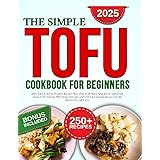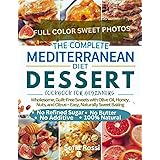Many individuals embark on a journey towards a healthier lifestyle, often incorporating nutrient-packed smoothies and shakes into their daily routine, believing every ingredient supports their goal. However, it’s easy for hidden calories and less optimal ingredients to slip into these concoctions, potentially hindering your progress, especially when aiming for weight loss. The good news is, a simple yet impactful swap can make a significant difference.
As highlighted in the video above, one of the easiest and most effective changes you can make to your smoothies and shakes for better weight management is to reconsider your choice of liquid base. Traditional dairy milk, while offering certain nutrients, can also pack a surprising amount of calories and saturated fat, which might not align with your dietary goals. Instead, embracing alternatives like almond milk, oat milk, coconut milk, or even lukewarm water can set you on a more direct path to success.
The Undeniable Advantage of Plant-Based Milks for Effective Weight Loss
Switching from dairy milk to plant-based alternatives or water in your blended drinks isn’t just a trend; it’s a strategically sound move for those focused on easy weight loss. These alternatives typically boast significantly fewer calories, less saturated fat, and often come fortified with essential vitamins, presenting a compelling nutritional profile.
Consider the caloric difference: A single cup (240ml) of 2% dairy milk can contain around 120-130 calories and about 5 grams of saturated fat. In contrast, a cup of unsweetened almond milk typically contains a mere 30-40 calories and virtually no saturated fat. This means a daily smoothie, using almond milk instead of 2% dairy, could save you close to 100 calories per serving. Over a week, that’s 700 calories, which can substantially contribute to a calorie deficit, the fundamental principle of successful weight loss.
Almond Milk: The Low-Calorie Champion for Weight Management
Unsweetened almond milk stands out as a top contender for its exceptionally low-calorie count. Made from almonds and water, it’s naturally low in sugar and fat. Its mild flavor makes it versatile for almost any smoothie combination without overpowering the other ingredients. Data suggests that choosing unsweetened almond milk can significantly reduce your caloric intake without sacrificing the creamy texture you desire in a shake.
Beyond its low-calorie nature, almond milk is often fortified with calcium and Vitamin D, offering benefits similar to dairy milk without the additional fat and sugar that can accumulate in a diet plan. Always opt for the unsweetened version to avoid added sugars, which can quickly negate your calorie-saving efforts.
Oat Milk: Creaminess with a Fiber Boost for Sustainable Weight Loss
For those who crave a richer, creamier texture, oat milk presents an excellent option. While slightly higher in calories than almond milk (around 120-130 calories per cup for unsweetened varieties), it offers a notable advantage: dietary fiber. Oats are renowned for their beta-glucans, a soluble fiber that can promote satiety, helping you feel fuller for longer. This sensation of fullness is crucial for weight loss, as it reduces the likelihood of overeating or snacking between meals.
Studies indicate that diets rich in fiber are linked to better weight management and improved digestive health. The fiber content in oat milk can also help stabilize blood sugar levels, preventing the energy crashes and subsequent cravings often associated with sugary drinks.
Coconut Milk: Tropical Flavor, Mindful Calorie Choices
When selecting coconut milk for smoothies and shakes, it’s important to distinguish between the canned, high-fat variety used in cooking and the carton, beverage-style coconut milk. For weight loss, always choose the unsweetened carton version, which is much lower in calories and fat (around 45-50 calories per cup). This lighter version still imparts a delightful, subtly sweet, and tropical flavor that can elevate your smoothies without the caloric density of its canned counterpart.
While beverage-style coconut milk is lower in protein than some other plant milks, its unique flavor profile can make your weight loss journey more enjoyable and varied. It’s a great choice for those looking to add an exotic touch to their nutritional regimen.
The Power of Pure Hydration: Lukewarm Water for Calorie-Free Weight Loss
Don’t underestimate the simplicity and effectiveness of plain lukewarm water as a base for your smoothies and shakes. When your primary goal is to maximize nutrient density from fruits and vegetables while minimizing caloric intake, water is the ultimate zero-calorie solution. It allows the natural flavors of your ingredients to shine through and ensures you’re boosting your hydration levels, which is vital for overall health and weight management.
Hydration plays a critical role in metabolic function. Research suggests that adequate water intake can increase your body’s resting energy expenditure. Furthermore, drinking water before meals can help reduce appetite, leading to lower calorie consumption. Opting for lukewarm water specifically can sometimes feel more soothing to the digestive system for some individuals.
Seamlessly Integrating Smart Swaps into Your Daily Routine for Better Weight Control
Making these liquid base substitutions is an incredibly easy tip to implement. Here are some actionable steps to ensure you leverage these choices effectively:
- Read Labels Carefully: Always choose unsweetened varieties of plant milks to avoid hidden sugars. Check the nutrition facts to compare calorie and sugar content across brands.
- Experiment with Flavors: Try different plant milks to discover which ones best complement your favorite smoothie ingredients. Almond milk is versatile, oat milk adds creaminess, and coconut milk provides a tropical twist.
- Blend with Purpose: If using water, enhance flavor with a squeeze of lemon or lime, a dash of cinnamon, or a few mint leaves. This keeps your smoothies exciting.
- Balance Your Ingredients: While the liquid base is important, remember to balance your smoothie with a good mix of protein (e.g., protein powder, Greek yogurt alternative), fiber (flax seeds, chia seeds, leafy greens), and healthy fats (avocado, nuts) to ensure satiety and sustained energy.
- Start Gradually: If you’re accustomed to dairy milk, transition gradually. Try a 50/50 mix of dairy and plant milk for a week, then fully switch.
Beyond the Blender: The Broader Impact of Mindful Choices on Your Weight Loss Journey
Implementing these simple swaps for your smoothie base is more than just a quick fix; it’s a step towards developing a more mindful approach to your diet, which is fundamental for long-term weight loss. Each small, conscious decision, like choosing unsweetened almond milk over dairy, contributes to a larger pattern of healthier eating habits. This principle extends to all aspects of your nutrition.
Understanding the caloric and nutritional density of your food choices empowers you. It moves you away from restrictive diets towards sustainable lifestyle changes. When you prioritize nutrient-dense, lower-calorie options, you create a caloric deficit more naturally, without feeling deprived. This approach to weight management is often more effective and leads to lasting results because it fosters a deeper understanding of food and its impact on your body.
By making smart, informed choices, starting with something as basic as your smoothie liquid, you’re not just shedding pounds; you’re building a foundation for a healthier, more energetic life. Embrace these easy weight loss tips and watch your progress flourish.











